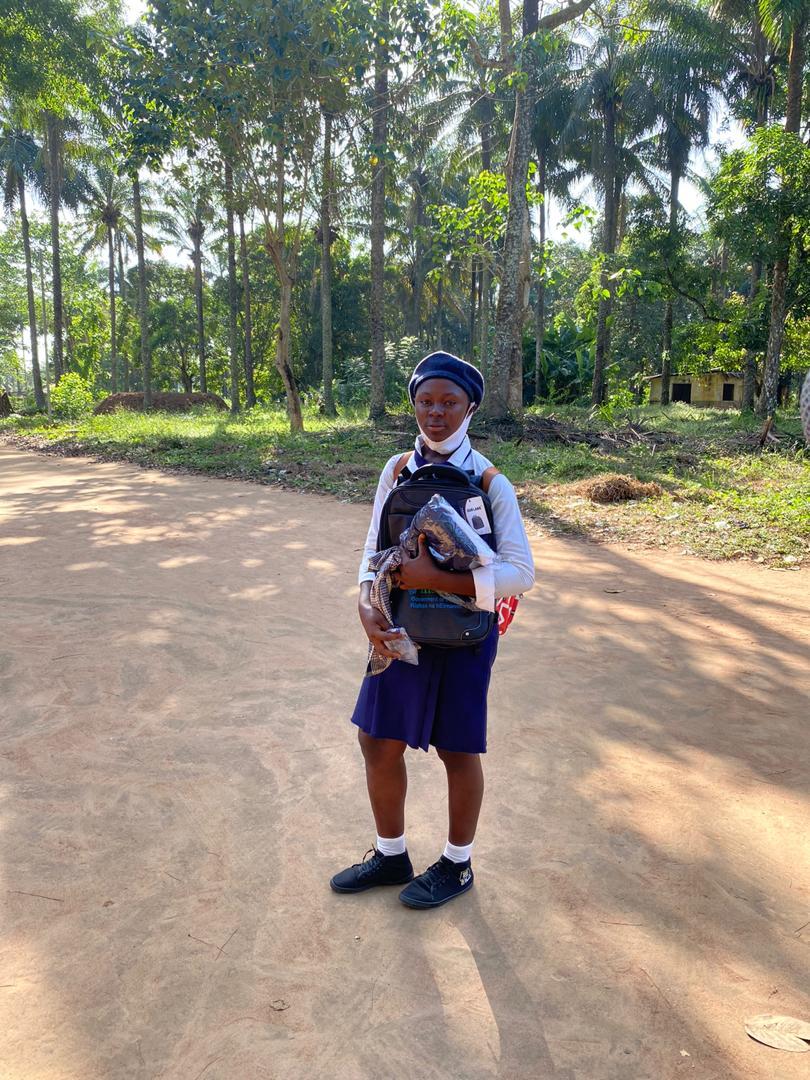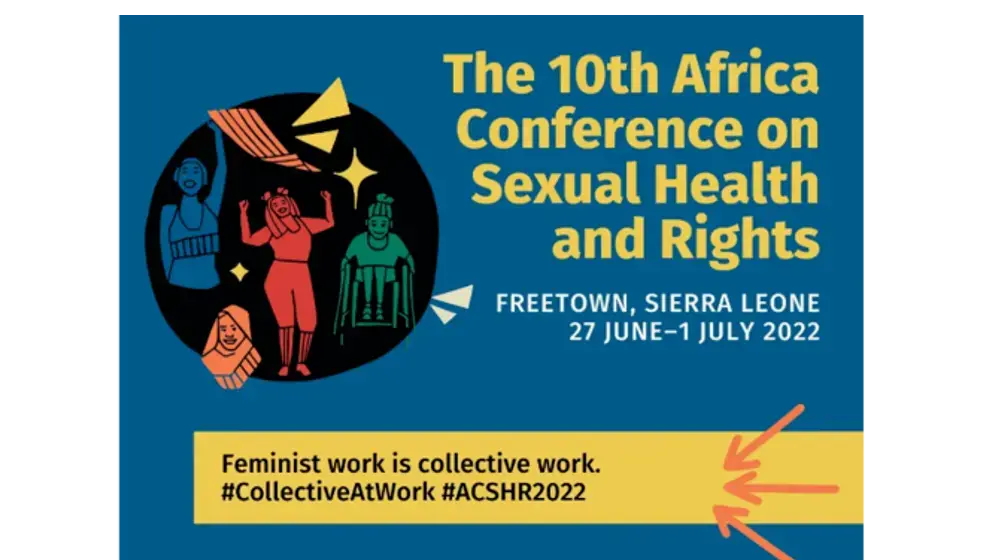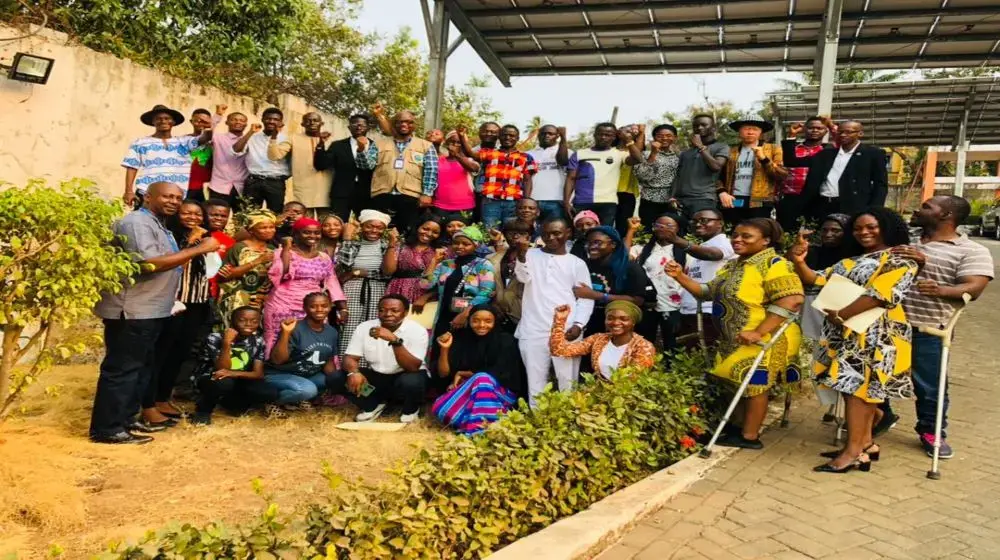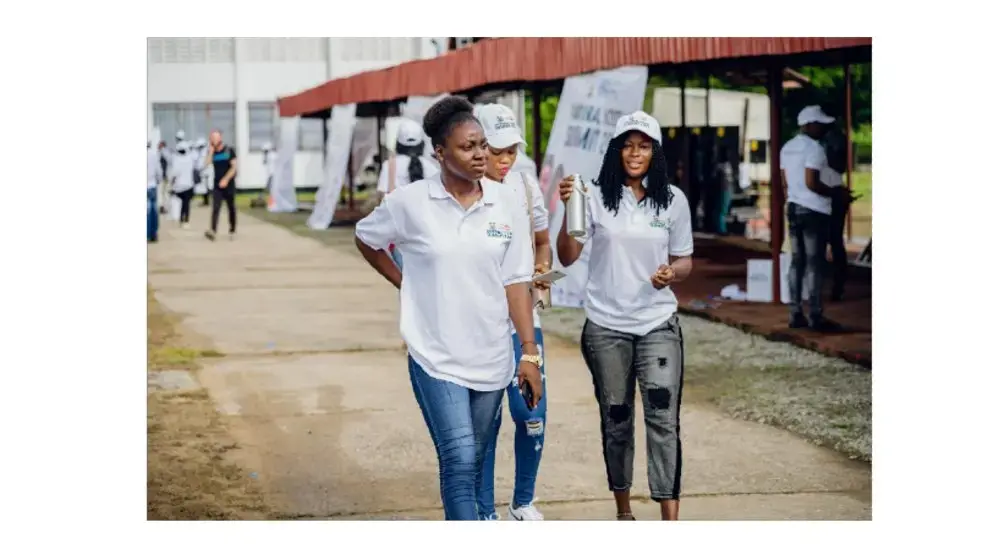KAMBIA, Sierra Leone, 4 December 2020 - When schools closed in March this year as part of the government’s coronavirus mitigation strategies, Fatmata S. Kamara, aged 17 from Mombolo Chiefdom, Kambia District was among almost two million children in Sierra Leone forced to stay at home and wait for for schools to re-open. “It was not something we were expecting and it affected our schooling. We became idle at some point and I never felt good about that. I spent most of the time with my mother helping her with farming activities”, explained Fatmata.
Before schools closed, Fatmata attended the Scarcies Baptists Secondary School where she enjoyed learning and spending time with friends. However, in 2018, Fatmata’s likelihood of finishing school was significantly at risk. Her mother, a single parent, wanted Fatmata to get married early, which was common practice in her district where 44 per cent of girls are married by the age of 18. Through the intervention of mentors from Women in Crisis Movement, a local non-governmental organisation supported by the United Nations Population Fund (UNFPA), Fatmata’s mother was persuaded to let her remain in school and continue with her education.
In 2018, Fatmata joined the girls club established by Women In Crisis Movement to provide a safe space to vulnerable adolescent girls in the Mambolo community. The Girls Club provides mentorship and life skills to adolescents at risk of child marriage and teenage pregnancy. It was through Fatmata’s participation in the Girls Club, that she was included in the UNFPA COVID-19 response activities to mitigate the impact of school closures on adolescent girls.
With lessons learned from the Ebola outbreak in Sierra Leone, which resulted in an estimated increase in teenage pregnancies, UNFPA mobilised resources to prevent history repeating itself. With funding from Irish Aid, over 2,000 girls in four districts received radios, stationary and dignity kits with personal care items such as sanitary pads, soap, toothpaste as well as masks and hand sanitisers. The supplies aimed to address the challenges of government restrictions on movement and the lack of access to schools by girls, which is usually a protective factor in preventing teenage pregnancy and early marriage.
“The radio teaching programme was helpful when [the] coronavirus came and schools closed. I used the radio to listen to the news and it helped me with my studies. This helped me not to forget my education through the programme being aired weekly”, said Famata. “I used to take notes whilst listening to the radio. I was interested in listening to science subjects most of the time. I used the radio to listen to programmes on teenage pregnancy and early marriage too”, Fatmata revealed.
In October 2020, with additional safety measures in place to prevent the spread of the coronavirus, the Ministry of Basic and Senior Secondary Education re-opened schools for the new academic year. UNFPA and partners, fully aware that any gap in formal education can increase a girl’s risk of not returning to school, partnered with Women In Crisis Movement to identify 1,000 vulnerable adolescent girls and supply them with new school uniforms, school bags and additional stationary materials, with funds from Irish Aid.
On receiving her supplies, Fatmata said, “I appreciate receiving the back to school kit from UNFPA [because] for this academic year I only had one uniform. With this gift, I now have a new bag and a new school uniform. The sanitary pads will help me maintain my hygiene which is very crucial for us girls.”
Fatmata is excited and enthusiastic about returning to her senior secondary school this term to continue with her studies to ultimately reach her career goals.
“I look forward to becoming a nurse, a profession I love so much”, said Fatmata excitedly. “I developed a great interest in medicine when I enrolled into the sciences at the senior secondary school level. I want to serve my community by becoming a nurse”.
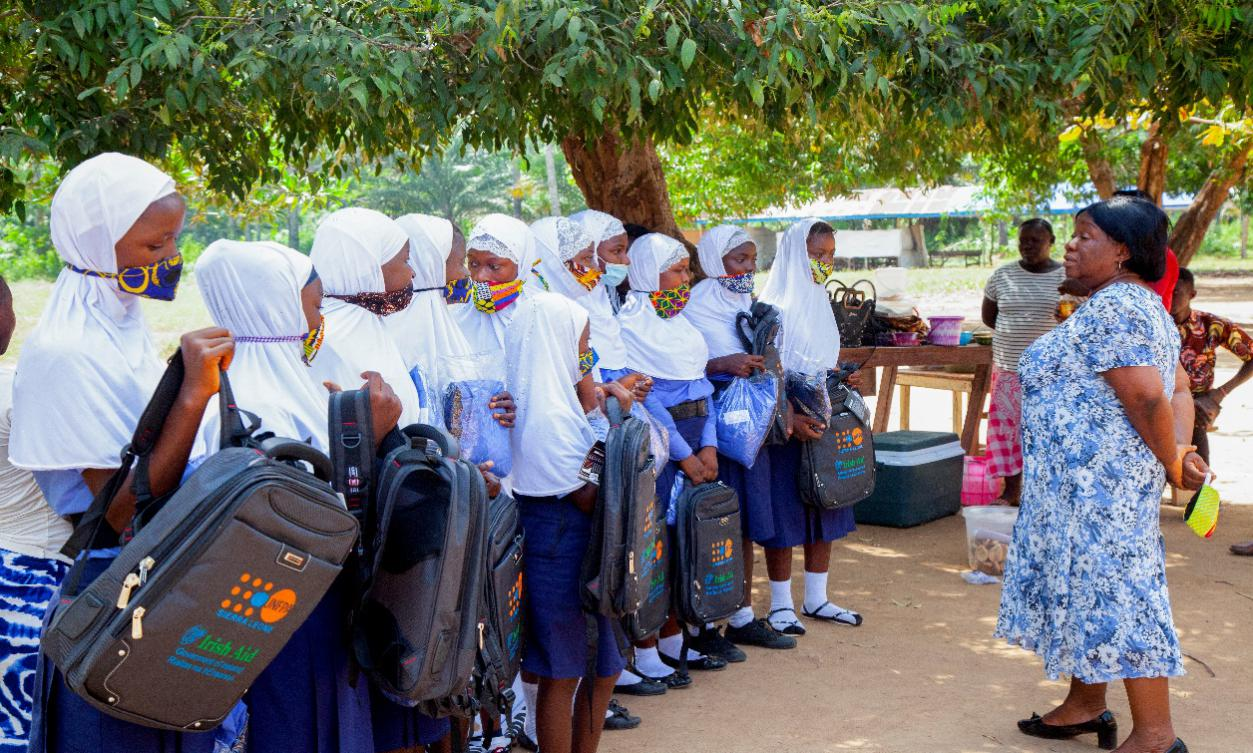
Women in Crisis Movement Director Juliana Konteh talking to girls with their school packages in Mambolo chiefdom, Kambia District. ©UNFPA Sierra Leone/2020/John Sesay
About the United Nations Population Fund
UNFPA is the United Nations sexual and reproductive health agency. Our mission is to deliver a world where every pregnancy is wanted, every childbirth is safe and every young person's potential is fulfilled.
For more information, please contact:
Angelique Reid, UNFPA Sierra Leone, Communication Specialist
Email: areid@unfpa.org
John Baimba Sesay, UNFPA Sierra Leone, Web and Media Analyst
Email: jsesay@unfpa.org Tel: +232 30953193/ +23279369395

